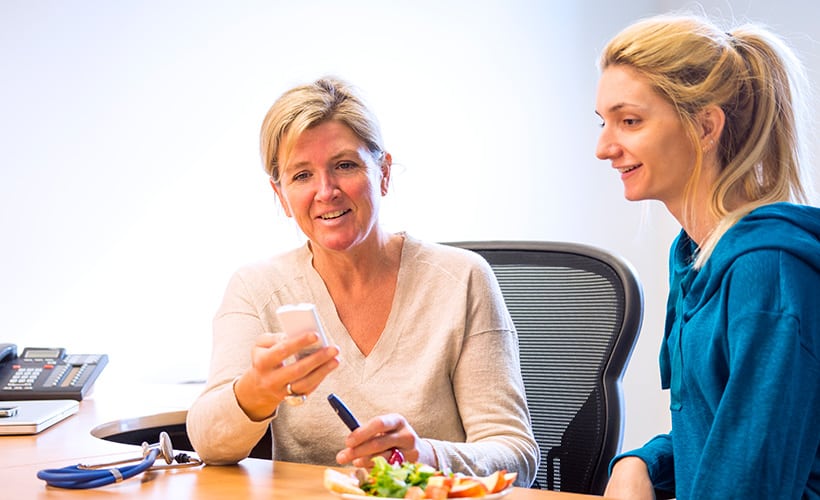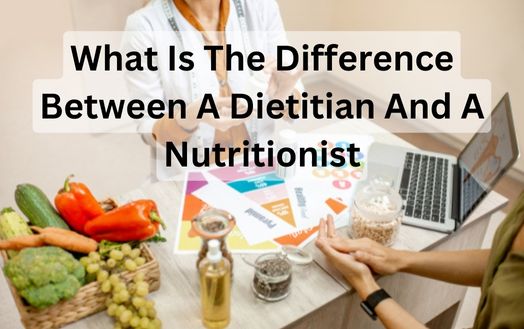All Categories
Featured
Table of Contents
-1
In the United States and numerous other countries, a dietitian is a board-certified food and nourishment specialist. They are very educated in the field of nourishment and dietetics the science of food, nutrition, and their impact on human health. With considerable training, dietitians obtain the knowledge to offer evidence-based medical nutrition treatment and nutritional counseling customized to fulfill an individual's requirements.
-1To gain these qualifications dietitians-to-be need to initially gain a bachelor's level or comparable debts from a certified program at an university or college. Generally, this needs an undergraduate scientific research degree, consisting of training courses in biology, microbiology, organic and inorganic chemistry, biochemistry and biology, composition, and physiology, as well as even more customized nutrition coursework.
Postpartum Weight Management – Nedlands
-1This allows them to examine intense demands, focusing on lethal conditions. Inpatient and outpatient dietitians likewise offer nutrition education to individuals with specialized demands, such as those recently out of surgery, in cancer cells therapy, or detected with chronic ailments like diabetes or kidney disease. In the outpatient setting, they offer a lot more in-depth dietary therapy functioning in the direction of a nutrition-oriented goal.
-1They can additionally advocate for public laws with a concentrate on nourishment, food, and health problems. Research study dietitians usually operate in research study healthcare facilities, organizations, or universities. They run within a research study group headed by a primary private investigator and execute nutrition-focused treatments. When dietitians have actually gained their qualifications and are functioning in the field, they can take place to concentrate on a particular subcategory, such as pediatrics or sporting activities dietetics.
-1They might additionally instruct in a scholastic or research study establishment or blog about nutrition-related topics. Others may work as wellness and nutrition specialists in media or as speakers. Dietitians are qualified to handle nourishment treatment across a span of intense and persistent conditions. The sort of conditions they treat depends most on the setting of their technique.
Vegan Dietitian (Karrakatta 6010)
-1In several states, such as Alaska, Florida, Illinois, Maryland, Massachusetts, and Pennsylvania, RDs and CNSs are provided the same state license, generally called a Certified Dietitian Nutritional Expert (LDN) certificate. In states that do not manage making use of this term, anyone with a rate of interest in diet or nourishment may call themselves a nutritional expert.
-1Due to the fact that uncredentialed nutritionists usually do not have the proficiency and training for clinical nourishment therapy and nourishment counseling, following their guidance might be considered unsafe (). Prior to consulting a nutritional expert, you might wish to inspect whether your state manages who might utilize this title. In the united state states that do not manage the term, no levels or qualifications are needed to be a nutritional expert.

-1
In states that do mandate licensure, the CNS or RD credential may needed. Those with CNS qualifications are health and wellness experts like registered nurses or medical professionals with sophisticated health degrees who have actually sought out extra coursework, finished supervised practice hours, and passed an examination supervised by the Board for Qualification of Nutrition Specialists.
-1While some of these strategies may have robust scientific backing, others might not. Giving nourishment recommendations without the correct understanding and training can be damaging, especially when counseling those with health conditions. Therefore, if you are thinking about seeking advice from a nutritional expert, you may want to ask if they are a CNS or have state licensure or accreditation, or one more credential.
Weight Management Nutritionist
-1Numerous states especially manage this term. In addition, nutritional experts might go after an advanced CNS qualification.
-1It can be challenging to assist people make real, long-term adjustments in their lives. Both dietitians and nutritionists supply a variety of nutrition-based services to customers.
-1They should have completed some level of education and learning in their area. They are additionally required to have actually finished as much as a year of supervised job, working within an assisted program at a medical care center, catering company, or community body. Dietitians have far greater expectations positioned on their capacities and degree of professionalism and trust.
-1This indicates that there is no body that supervises their credentials and no specifically stringent standards that nutritionists requirement to adhere to in order to be able to practice. Dietitians, on the other hand, are signed up with across the country identified bodies, such as the Dietitians Association of Australia. They should follow the National Competency Criteria for Dietitians.
Weight Management Dietitian – Nedlands

-1
You can practice as a nutritionist without the very same level of accreditation as a dietitian. Nutritional expert training courses can vary in length and quality, with some as brief as six weeks and covering far much less material than a dietetics program. Depending upon your education and learning provider, you can get a considerable amount of expertise via examining a straightforward nutrition course; nevertheless it is very important to check out the training course material prior to starting.
-1This can include participating in sector workshops or reading industry publications. Nutritionists, on the other hand, usually gain their credentials in order to supplement other qualifications and give better suggestions to their clients. Nutritionists can obtain employment in a large range of fields, consisting of public wellness advice, advice for people, and dealing with personal organisations.
-1Nutritionists can function with sporting organisations, fitness centers, colleges and suggest media outlets on fundamental terms and right usage of terms. Often, individuals will look for the solutions of a nutritional expert to assist them in getting right into shape. Dietitians can function in the majority of the exact same roles as nutritionists. With a greater level of accreditation, they can quickly enter a role that a nutritional expert would certainly hold, offered they are otherwise equal.
Clinical Dietitian – Nedlands 6010
-1Dietitians frequently function with even more medically sensitive clients. Due to the fact that of the high level of knowledge called for to provide solutions to these individuals, just approved dietitians are permitted to give treatment.
-1In Australia there is a difference in between a dietitian and other dietary wellness suppliers consisting of nutritional experts. All dietitians are nutritionists, however nutritional experts without a dietetics certification can't call themselves a dietitian.
-1Dietitians with the Accredited Practising Dietitian (APD) credential devote to recurring training and education and learning throughout their professions. They abide by our code of conduct. Dietitians have the understanding and skills located in the National Proficiency Requirements for Dietitians. As an occupation, nutritional experts are not controlled in Australia under NASRHP or licensed under a single governing body.
Holistic Nutritionist (Karrakatta)
-1If you have a chronic health problem and a treatment strategy from your GP, you may have the ability to declare a Medicare refund when you see an APD. Discover more regarding aid with costs when seeing a dietitian. The primary function of people working in the occupation of dietetics is embodied in this statement: The career of dietetics contributes to the promo of wellness and the prevention and therapy of ailment by optimizing the nourishment of populaces, neighborhoods and individuals.
Latest Posts
Videos, Documentaries & Podcasts ( Bunbury 6230)
How We Can Help ( Swan 6066)
Frequently Asked Questions